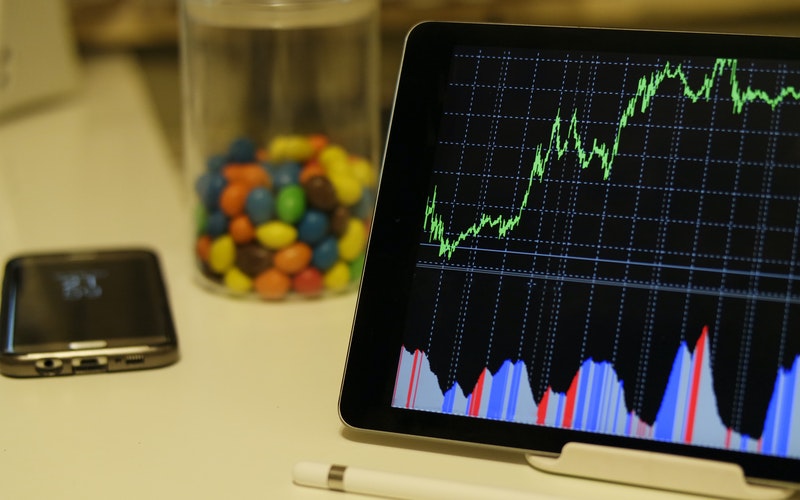How to participate in the Nigerian stock market

The process of getting involved in the Nigerian stock market has been largely simplified by the regulatory authorities in recent years. Effective policies have been set up to make the market more attractive and investor-friendly. Honestly, this is a good time to participate in the stock market if you have not already joined.You can only buy or sell shares of publicly quoted companies solely from the Nigerian Stock Exchange (NSE), through a licenced stockbroker, who acts as a middleman between you and the exchange. So, before you start trading stocks, you must open a stockbroking account with any of the approved brokerage firms.
As part of the application process, in accordance with the know-your-customer procedure set out by the regulators, you will be required to provide a valid means of identification, bank account details, bank verification number, passport photographs, specimen signature, next of kin details and proof of address. It can take up to forty-eight hours for the account opening process to complete.
With the popularity of online trading soaring, it is possible to open an account online, albeit not all stockbrokers have this feature. Online trading is highly recommended. It provides the ease of submitting an application remotely without physically having to visit the stockbroker and it lets you trade effortlessly on the fly. As part of the account opening process, you will be allocated a unique clearing house number.
Another recommended resource for investors is a Central Securities Clearing System (CSCS) online account. The CSCS itself is a subsidiary of the NSE that keeps the portfolio of all investors in the Nigerian stock market in a central location. The account allows investors to view their portfolios independent of their stockbrokers—helping them to mitigate fraudulent activities on their accounts.
To buy stocks, you must first fund your stockbroking account, after which you will be able to select and buy stocks that pique your interest. It is a lot easier using an online trading platform as it allows you to buy and sell stocks on your own, without first sending a direct instruction to the stockbroker. Once the order is placed, if there is a buyer at the other end and if your price requirement is met, it will be instantly executed. The processing speed is as a result of the trading platform being directly connected to the floor of the stock exchange. The purchased stock will be credited to your account and a contract note will be sent to your by the stockbroker. The process is the same for a stock sale.
Something more you need to be aware of is transaction fees. The fees are charged any time you buy or sell a stock. They are statutory fees that you pay to the regulators and the commissions you pay to the stockbroker. Statutory fees are fixed while stockbroker commissions vary as determined by each stockbroker, however, it cannot be higher than 1.35% of the sale or purchase value. There are no taxes payable on capital gains in Nigeria.
When you buy or sell stocks, it usually takes additional 3 working days (T+3 ) before the transaction settles. After your 'sell' order is executed, the money is immediately credited to your stockbroking account and you are able to transfer it into your bank account if you so wish. The withdrawal process can be completed in the online portal and the money should be in your bank account within 24 hours. Remember, the bank account where your money will be credited is the one you provided when you registered.
The NSE usually opens for trading at 9.30 am for pre-markets. During pre-markets, you can place bids or offers and catch a glimpse of how the prices of stocks and the market as a whole might open officially. Pre-markets close by 10.00 am and trading commences immediately. The market closes at 2.30 pm local time.
The NSE also has a number of market segments that represents different liquidity levels. They are the Premium Board, Main Board, and the Alternative Stock Exchange Market (ASEM). The Premium Board includes the most capitalized stocks on the exchange. The main board includes about 190 stocks and is as liquid as the Premium Board. The ASEM is a market for smaller stocks and is highly illiquid. This means you might not see the stocks to buy and even if you buy, there are very few buyers available due to low trade volume.
Similar to other stock exchanges around the world, the NSE also has an index system. The All Share Index, which is a broader representation of all stocks, includes all the stocks listed on the exchange and tracks their performance daily. There are also sub-indexes for sectors for example as healthcare, industrial goods, natural resources and so on. There is also the NSE 30, which is Nigeria's own equivalent of the Dow. It tracks the performance of the 30 most capitalized stocks on the stock exchange.
Market information is key to being a successful stock trader and the NSE has improved over the years in the dissemination of quality market information to investors via its website. These include share prices, trade volume, price action, 52-week high, 52-week low, market capitalisation and so on. Registrars also publish the results and other corporate information of their client companies on their respective websites. Results are usually published quarterly. You can also get similar information from various stockbroker websites, many of whom now offer a free subscription service where you can get market-information newsletters sent periodically to you by email.
Besides capital gains, you can also get returns from your investments in form of dividends. Dividends can either be paid in cash, stocks or a combination of both. Cash dividends are now paid electronically into investors' nominated bank accounts under the e-dividend scheme. Unfortunately, enrolment to the scheme is not automatic. So, to set up a e-dividend mandate, contact the registrars for the stocks you own and provide them with your bank details and means of identification. The good news is that enrolment and verification can now be done remotely via the e-dividend mandate management system (EDMMS) which features a web-based portal that can be assessed by every branch of all banks and by all registrars. The portal allows all the registrars to verify your signature with the bank and electronically process your e-dividend mandate request.
After the mandate becomes active, you get your dividends as soon as it is paid by the company, directly into your bank account. Dividends earned in form of shares, called bonuses, are credited to your CSCS account, which you are able to view online, independent of your stockbroker.
